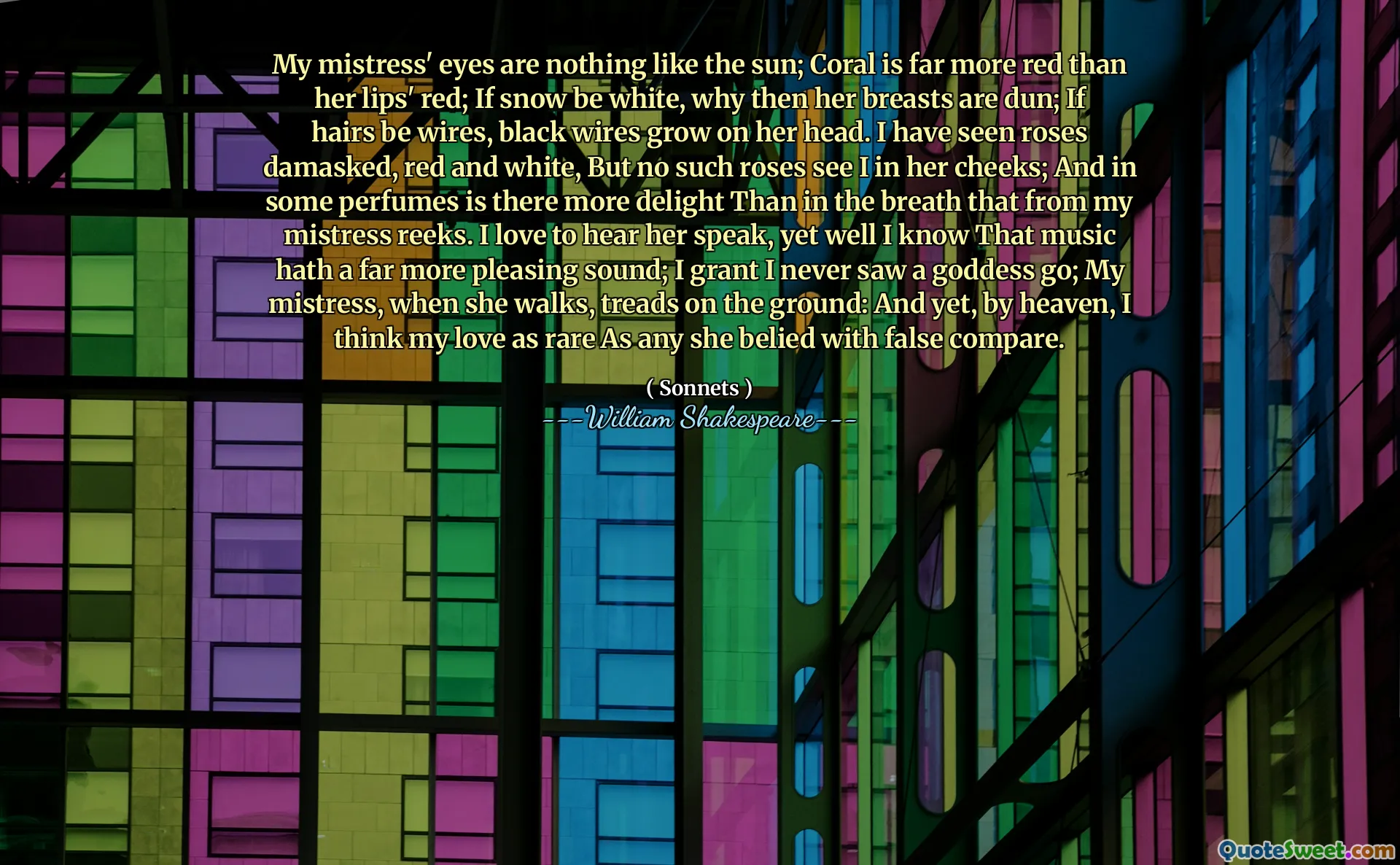
My mistress' eyes are nothing like the sun; Coral is far more red than her lips' red; If snow be white, why then her breasts are dun; If hairs be wires, black wires grow on her head. I have seen roses damasked, red and white, But no such roses see I in her cheeks; And in some perfumes is there more delight Than in the breath that from my mistress reeks. I love to hear her speak, yet well I know That music hath a far more pleasing sound; I grant I never saw a goddess go; My mistress, when she walks, treads on the ground: And yet, by heaven, I think my love as rare As any she belied with false compare.
William Shakespeare's Sonnet 130 challenges the conventional ideals of beauty often portrayed in poetry of his time. Instead of idealizing his mistress with exaggerated comparisons, Shakespeare presents a more realistic and honest depiction. He openly describes her as having eyes not like the bright sun, lips less red than coral, and her skin—dun-colored rather than snow-white—highlighting her natural flaws and imperfections. These candid descriptions serve to reject superficiality, emphasizing that true love isn't based on superficial comparisons or unrealistic standards. The poet recognizes her physical shortcomings but concludes that her authenticity, character, and genuine affection make her love for her mistress as rare and precious as any idealized beauty. This sonnet is a celebration of sincerity, suggesting that love rooted in reality and honesty can be more admirable than admiration based solely on physical perfection. Shakespeare’s use of irony and understated humor exemplifies the depth and complexity of genuine affection, urging us to look beyond surface appearances and cherish authentic connection and love for what truly matters. It’s a timeless reminder that beauty and love are varied and multifaceted, not confined to societal ideals or exaggerated comparisons. The sonnet ultimately champions the virtue of authenticity in love, celebrating imperfection alongside affection and sincerity.





